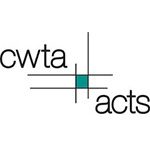Posted: May 1 '19
.jpg)
The Occupational Health and Safety Regulation (OHSR) requires that you inspect your fall protection gear frequently especially before each use. Also, follow the manufacturer's recommendation on the frequency of inspection. Do you know how to properly inspect fall protection equipment?
According to OHRS, your fall protection equipment must be;
a. Harness
It is essential that you identify the wear points. Constant wearing of the harness using a single specific hole finally wears that hole out. The wearing out is especially the case with frequently adjusted parts leading to webbing in the grommet area hence inefficiency.
Inspect the hardware to see if it’s deformed, burnt, discolored, stiff, or marked by spills. Pay closer attention to buckles, D-rings, and stitching to ensure they are all intact and not expired.
b. Lanyard
When performing your Fall Protection Equipment Inspection on the lanyard, test whether the locking gate is functioning appropriately, failure to operate well is a sign of deformity caused by corrosion, damaged hardware and missing rivets, and lock twisting.
For the webbing, check for stiffness, discoloration, and foreign markings. Is the state of the termination proper and are the shock absorbers in perfect condition? If deployed, immediately remove the lanyard from service as is required by OHS.
Give a closer look at the Self-retracting lifelines (SRL's) for maximum operability. Inspect the housing for damage while assessing the functioning of the retracting mechanism and swivel. Ensure all fasteners and rivets are in place.
Just like in the lanyard, inspect the hook to ascertain if the gates are well. Are there damage, separation, and cable fraying in the wire which prevents playing out and proper locking? Lastly, ensure that all labels are legible and the lanyard is intact.
c. Anchorage
Make sure your anchorage connectors meet AHS standards. Follow steps similar to those of the harness and lanyard when inspecting the anchorage. You should examine the cable and webbing for deployment, damages, spills, discoloration, labels, etc. Also, ensure that the anchorage is well fitted and functioning at maximum capacity.
Do You Know How To Properly Inspect Fall Protection Equipment? A false sense of safety in your workplace spells doom to the lives of your employees. Work with a qualified engineer to do the fall protection equipment inspection while training your employees on proper use, maintenance, and examination of the equipment.
Call us now for affordable fall protection equipment inspection services.
REQUEST INFO ON OUR COURSES



